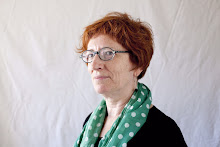On the contrary, I’d gotten used – then in France and now also in Portugal – to remarks such as “ouch, what a complicated name!”, or “that’s a foreign name, isn’t it?”. Or even worse, to phonetic deformations of my patronym that go beyond what one might reasonably expect (“Mme Chantapel? I’m calling you about…” – that was the beginning of another unforgettable phone call, also in French).
For those who have always known their surnames were “typical” of some place, wherever that might be, my reaction may seem strange. But believe me: I was utterly surprised and delighted by that (immediately) nice Alsatian man’s reaction. My name, I realized, might be from somewhere after all…
Five years after his death in Paris, my father’s memoirs have just been published by Libros del Zorzal Editions, under the title Autobombo (which means something like “showing off”), in Argentina, where he had emigrated from Poland with his family when he was only six months old. And as I reread the book, I discovered a historical explanation for the spontaneous familiarity that gentleman from Alsatia had expressed with regard to surnames like mine.
 My paternal and maternal surnames [Gerschenfeld and Rosenblatt], my father writes, make me think that my family came from Alsatia or Rhenany, were Jews had settled in the fourteenth century, after their exclusion from France and England. A further series of expulsions forced them to move eastward, to other regions of Germany, and in the fifteenth and sixteenth centuries, they finally settled in what was then the Kingdom of Poland (which also included parts of Ukraine).
My paternal and maternal surnames [Gerschenfeld and Rosenblatt], my father writes, make me think that my family came from Alsatia or Rhenany, were Jews had settled in the fourteenth century, after their exclusion from France and England. A further series of expulsions forced them to move eastward, to other regions of Germany, and in the fifteenth and sixteenth centuries, they finally settled in what was then the Kingdom of Poland (which also included parts of Ukraine).At that time, Jews were not allowed to reside in the Empire of the Tsars, but after several partitions of the Kingdom of Poland, between 1772 and 1795, more than 70 percent of that kingdom’s territories had been annexed by the Russian Empire. In this way, and since Catherine the Great imposed on them to remain in the so-called “reserved zone” (in Russian, Cherta Osedlosti), those Jews automatically became the discriminated subjects of that empire, which spanned territories that are today part of Poland, Lithuania, Ukraine, Romania, and Belarus.
Pages of the book, written in Spanish, containing this excerpt
So this explains that… And it also explains why, when I looked more closely at the genetic similarity map 23andme had constructed based on the results of my DNA test (which I have already written about in this blog), I realized that, although the “Ukrainians” are, as I already mentioned, the population whose genetic makeup is closest to mine, that map places me, in fact, at the confluence of people from all over Europe – and in particular of Northern Europe, which includes the French and the Germans.
On the other hand, I’m also very close to the Austrians – and, from Southern Europe, to the Italians –, which suggests that my ancestor’s trail, maybe before the end of the Middle Ages, may have been even more tortuous.
Credit for the photograph appearing on the book's cover: Mario Muchnik





Ana, I just followed the link from your 23andMe account. This is such an interesting blog. I am really enjoying reading it. I found myself relating to the satisfaction of realizing that your name was actually "typical". For other reasons, I think I've always been looking for the place where I was from, where I belonged. Maybe we all have. Congratulations on your father's book being published. Kate Tregowath.
ReplyDelete